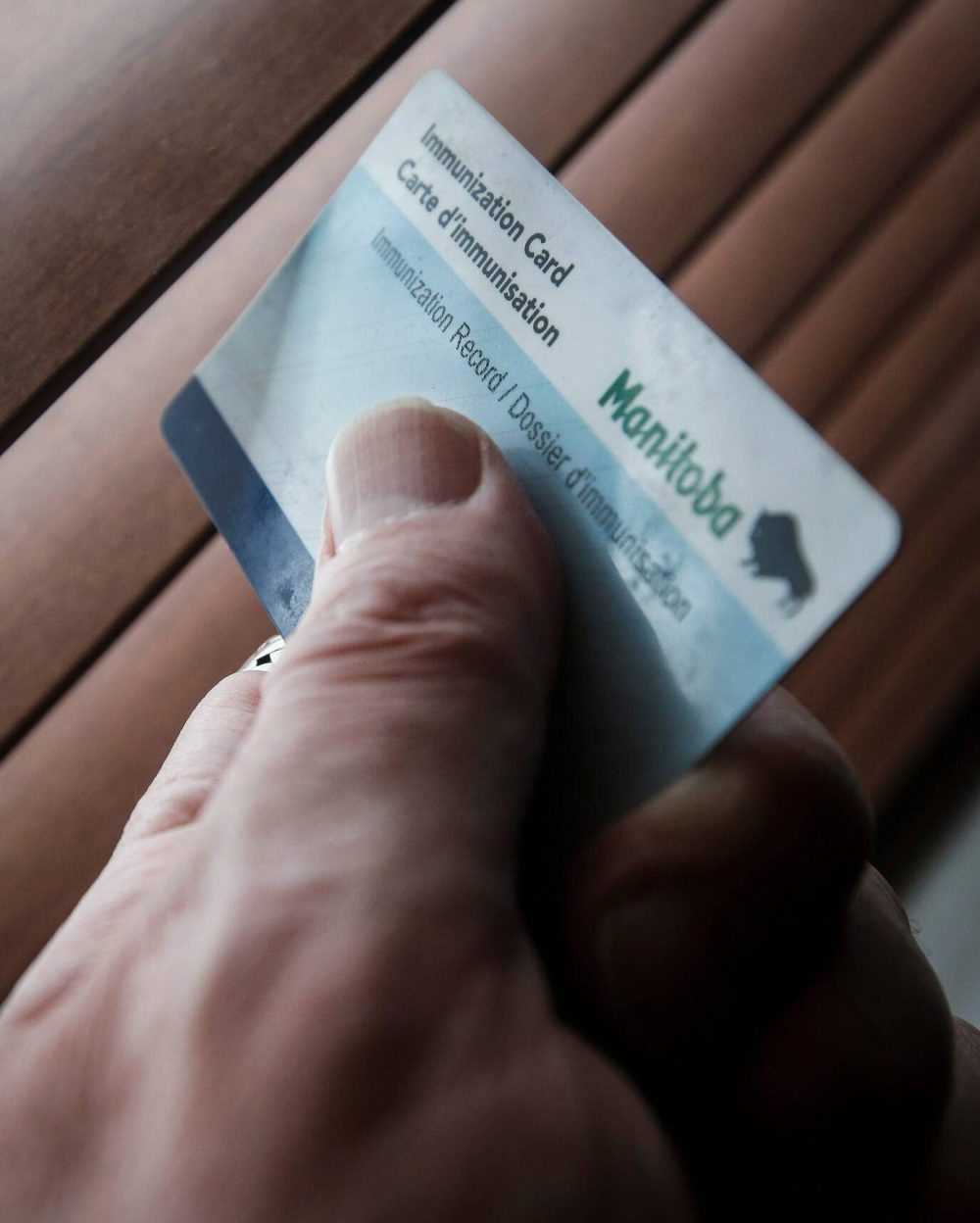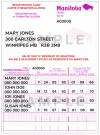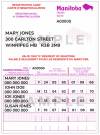Cards on the table: proof-of-vax passports nearly 19 times pricier than health cards Province opted for plastic at $1.67 apiece over paper at less than a dime; 1.25 million produced at total cost of $6.2M
Read this article for free:
or
Already have an account? Log in here »
To continue reading, please subscribe:
Monthly Digital Subscription
$0 for the first 4 weeks*
- Enjoy unlimited reading on winnipegfreepress.com
- Read the E-Edition, our digital replica newspaper
- Access News Break, our award-winning app
- Play interactive puzzles
*No charge for 4 weeks then price increases to the regular rate of $19.00 plus GST every four weeks. Offer available to new and qualified returning subscribers only. Cancel any time.
Monthly Digital Subscription
$4.75/week*
- Enjoy unlimited reading on winnipegfreepress.com
- Read the E-Edition, our digital replica newspaper
- Access News Break, our award-winning app
- Play interactive puzzles
*Billed as $19 plus GST every four weeks. Cancel any time.
To continue reading, please subscribe:
Add Free Press access to your Brandon Sun subscription for only an additional
$1 for the first 4 weeks*
*Your next subscription payment will increase by $1.00 and you will be charged $16.99 plus GST for four weeks. After four weeks, your payment will increase to $23.99 plus GST every four weeks.
Read unlimited articles for free today:
or
Already have an account? Log in here »
Hey there, time traveller!
This article was published 04/03/2024 (648 days ago), so information in it may no longer be current.
The Manitoba government spent nearly 19 times more money to make proof-of-immunization cards during the COVID-19 pandemic than it does on paper health cards.
It cost $1.67 to produce each plastic credential. The price tag of making a permanent health card is less than 10 cents.
New data shows the rollout of temporary passports equipped with QR codes — an incentive to get two vaccine doses — cost approximately $6.2 million.
JOHN WOODS / FREE PRESS FILES Gage Haubrich, Prairie director at the Canadian Taxpayers Federation.
The 2021 research and card-development process came out to $4.1 million overall, according to a freedom of information request filed by the Free Press.
Figures from the Consumer Protection and Government Services Department indicate the cost of buying and distributing the specialized identification was just under $2.1 million.
The IDs complemented virtual cards and allowed recipients entry into public facilities, businesses and crowded events between June 2021 and March 2022. They were useful during a nine-month window.
“It’s pretty ludicrous for the province to spend $6 million on heavy-duty plastic vaccine cards when the government knew the program was likely going to be temporary,” said Gage Haubrich, Prairie director at the Canadian Taxpayers Federation.
Haubrich said it was a “fool-hearted decision” to fork out so much money on the cards at a time when spending was up significantly to address pandemic expenses.
The equivalent certificates in Saskatchewan were printed on paper, not unlike Manitoba’s permanent health cards, he said, adding there was no local “exit strategy” to inform residents what to do with their hard-copy cards once restrictions were eased.
“It’s pretty ludicrous for the province to spend $6 million on heavy-duty plastic vaccine cards when the government knew the program was likely going to be temporary.”–Gage Haubrich
Progressive Conservative spokesman Matt Preprost said the pandemic had a significant impact on Manitobans and required “an extraordinary whole of government response to keep communities healthy and safe.”
“As the auditor general concluded, the Manitoba government effectively managed the vaccine rollout, helping people get back to their lives and businesses get back to work,” Preprost said in a statement.
JOHN WOODS / FREE PRESS The Manitoba immunization cards cost the government upwards of $6M and were used for less than a year.
This month marks two years since the former PC government began permanently easing COVID-19 restrictions to, as then-premier Heather Stefanson put it, welcome a “new normal.”
As of March 1, 2022, Manitobans were no longer required to show proof of vaccination to enter public venues. Indoor mask mandates and all other public health orders ended two weeks later.
“We need to end the divisiveness between families, between communities. We need to move forward,” Stefanson said at the time of the announcement, which was made as so-called freedom fighters — many of whom parked their big-rig cabs along Memorial Boulevard — protested outside the Manitoba Legislative Building.
FOI data shows 1.25 million immunization cards were made in Manitoba.
Cardholders were initially exempt from quarantine periods following both interprovincial travel and close contact with a COVID-19 case. The wallet-sized ID allowed individuals greater visiting privileges at hospitals and personal-care homes.
Health document costs
COVID-19 immunization card: $1.67
Single family health card (for residents aged 18 and up): $0.09
Family health card: $0.08
— Manitoba government
The perks of holding a vaccine passport changed as public health orders grew.
The Manitoba Health Coalition’s Molly McCracken said their cost should be measured “by their utility in the public health response to the pandemic.”
“The cards enabled people to travel domestically, attend sporting and cultural events, and enabled the loosening of public health restrictions. The cards helped with economic development and to aid in improving mental health by decreasing social isolation,” McCracken said via email, noting the credentials motivated some people to get vaccinated.
NDP press secretary Caedmon Malowany echoed those comments, saying COVID-19 immunization cards played an important role during an unprecedented time.
While the cards are no longer in use, the current government “strongly” recommends Manitobans continue to protect themselves and their communities with seasonal flu and COVID-19 vaccinations, Malowany said.
maggie.macintosh@freepress.mb.ca

Maggie Macintosh
Education reporter
Maggie Macintosh reports on education for the Free Press. Originally from Hamilton, Ont., she first reported for the Free Press in 2017. Read more about Maggie.
Funding for the Free Press education reporter comes from the Government of Canada through the Local Journalism Initiative.
Every piece of reporting Maggie produces is reviewed by an editing team before it is posted online or published in print — part of the Free Press‘s tradition, since 1872, of producing reliable independent journalism. Read more about Free Press’s history and mandate, and learn how our newsroom operates.
Our newsroom depends on a growing audience of readers to power our journalism. If you are not a paid reader, please consider becoming a subscriber.
Our newsroom depends on its audience of readers to power our journalism. Thank you for your support.





